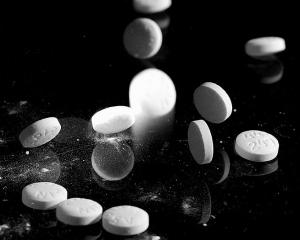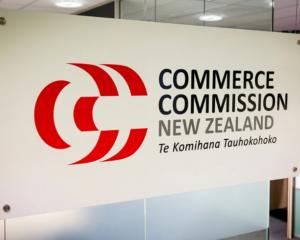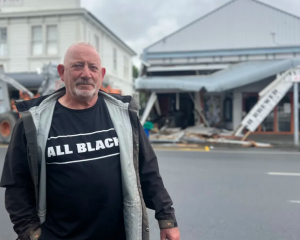Both the New Zealand and Australian sharemarkets came out of February relatively unscathed, Craigs Investment Partners broker Chris Timms says. He tells business editor Dene Mackenzie market volatility was offset by a solid reporting season.
The latest reporting season has ended with the New Zealand and Australian markets down just 0.8% and 0.4% respectively in February.
Craigs Investment Partners broker Chris Timms said the small falls came despite the ASX 200 being down 4.8% at one stage through February and the NZX50 being down 4%.
''It was certainly a month of two halves, with initial equity market volatility being offset by a relatively solid reporting season.''
Overall, there were few major surprises from management teams during the reporting season.
Growth expectations had remained largely unchanged from the start of the year, he said.
Milk company a2 Milk was the best performer in February on the back of a strong result and a partnership with Fonterra.
Synlait, after initial weakness, rebounded strongly when it announced the acquisition of land for a new manufacturing site.
Summerset and Air New Zealand also improved on better-than-expected results, Mr Timms said.
A2 Milk delivered a strong result, better than market expectations, largely because of growth in the infant formula business. Revenue was up 70% to $434million and the profit was up 150% to $98million.
The announcement of a strategic partnership with Fonterra was positive as it endorsed the a2 only proposition, opened up global distribution and created a multi-site and country supply.
Tourism Holdings produced another strong result, leveraging the increased in global tourism, especially into New Zealand, he said.
The United States acquisition, El Monte, performed better than expected. Full-year guidance appeared conservative but that was likely due to the uncertainty of the low-season performance of its US acquisition and costs related to the recent joint venture with Thor.
Port of Tauranga reported a profit ahead of expectations by being able to better convert trade volumes into revenue growth, Mr Timms said.
Following the strong result, the company upgraded its full-year guidance for its reported profit from $92million to $96million.
''Port of Tauranga remains a high-quality infrastructure asset but this appears fully reflected in the current share price.''
Meridian Energy's result showed despite dry South Island hydro conditions, the company had the ability to mitigate risks through difficult periods, he said.
Retail electricity competition was creating some difficulties. Meridian had the growth opportunities in the Australian market through its Powershop brand.
Trade Me grew both its first-half revenue and profit, unsurprisingly, given the trading update provided in November, Mr Timms said.
''We think management are taking appropriate steps given the current competitive environment but there is unlikely to be any major catalyst to drive the stock significantly higher.''
Ebos Group showed slowing organic growth in its core Australian healthcare business, offset by acquisitions and strong growth from its animal care and New Zealand healthcare segments. Full-year guidance was left unchanged. With a gross yield of more than 5% and good earnings growth over the next three years, Ebos provided a good mix of income and growth, he said.
There were no surprises in the Fletcher Building first-half result. Group earnings before interest and tax for the period was a loss of $332million. Full-year guidance was maintained but implied a ''very strong'' second-half performance was required. A stretched balance sheet and poor near-term cash flows remained a concern, Mr Timms said.
In Australia, CSL delivered the standout result with reported profit jumping 31% in constant currencies.
The company upgraded its full-year guidance to 18% profit growth from 13%.
The core immunoglobulin business continued to go from strength to strength while new prospects in the specialty and haemophilia segments had been well received.
However, the result was ''really driven'' by the Seqirus flu business moving to profitability, aided by a severe US flu season, he said.
Ramsay Healthcare delivered an underwhelming first-half result, missing expectations by about 3%.
Australia was solid against a backdrop of challenging industry conditions. The French and United Kingdom businesses weighed on the results, Mr Timms said.














